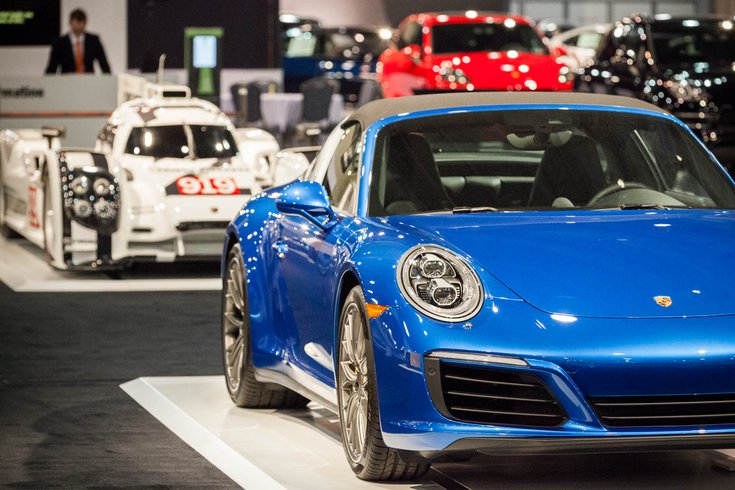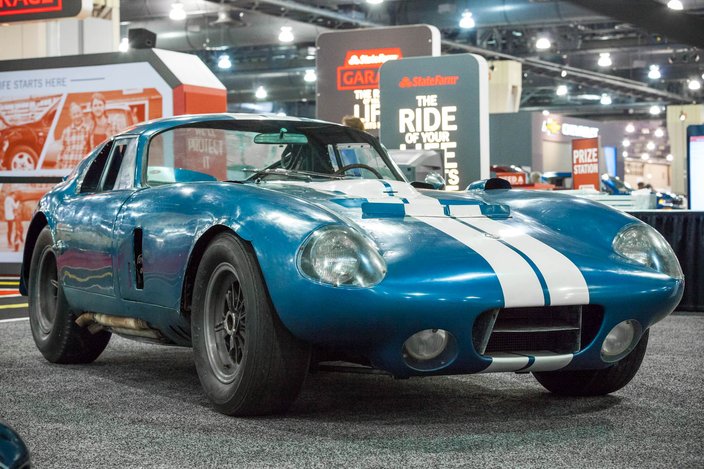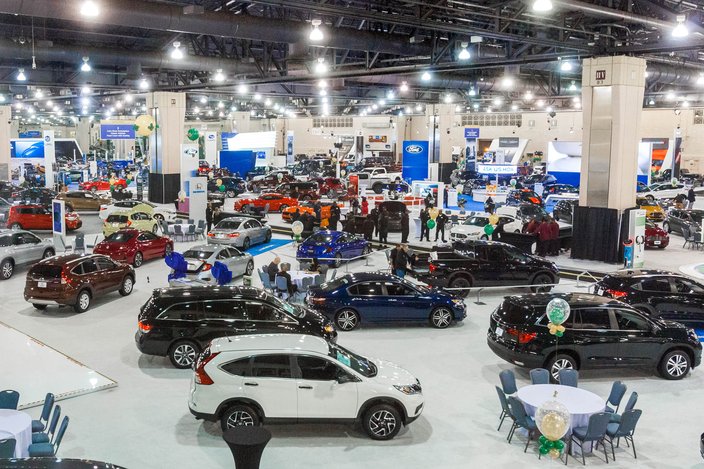
January 26, 2017
 Thom Carroll/PhillyVoice
Thom Carroll/PhillyVoice
The 2017 Philadelphia Auto Show runs from Saturday, January 28 until Sunday, February 5, 2017 at the Pennsylvania Convention Center.
The evidence—empirical and anecdotal—suggests that millennials have not formed the kind of emotional and psychological attachments to cars (and the driving thereof) that characterized their parents’ and grandparents’ generations.
For instance, according to a 2016 report issued by the University of Michigan's Transportation Research Institute, in 2014, 76 percent of Americans ages 20-24 held valid driver’s licenses. In 2011, the number was almost 80 percent. In 1983, it was 91 percent.
Those figures—not to mention ride-share services Uber and Lyft and a not-too-distant future of self-driving vehicles—suggest there are bleak times ahead for those who manufacture, market and sell cars. But as the 2017 Philadelphia Auto Show prepares to kick off its annual orgy of mobile gadgets, geegaws and gas guzzlers at the Pennsylvania Convention Center Saturday, those responsible for the expo are hardly wringing their hands in fear and desperation.
1964 Cobra Daytona Coupe
“The millennials…are a large, diverse group [with] complicated views about cars. It doesn’t mean they’re strange or wrong, just different.
“A lot of millennials came of age during the Great Recession. What was happening was—you had the debt crisis and the devaluation of the [housing] market, you had [high] unemployment, you had high debt, and all of those things had an impact on them being able to buy a car. I think what happened, on the millennial side, they’re all waiting for the major things in their lives, whether they’re getting married or starting families or leaving home; things are happening later. And I think vehicle purchases are part of that narrative as well.
“It’s not that they’re not going to buy. It’s simply they’re delaying [car purchases] because of where they are in the process of life. But they are looked at as an extremely important demographic for the car industry.”
To prove his point, Mazzucola quoted figures that indicate younger folks aren’t turning their backs on car-buying. According to his numbers, in 2010, millennials comprised 30 percent of the population and they accounted for 17 percent of new car and truck sales in the U.S. In 2016, "Generation M" represents 25 percent of the population, but 28 percent of new-vehicle sales.
Nonetheless, Mazzucola explained that the automobile industry is not taking millennials for granted and that young peoples’ wishes are its command.
“I think they look at them as more utilitarian than aspirational. When…I grew up, it was all about how cool [a car] looks, horsepower and handling.”
Today, “millennials expect a car to do everything that their smartphone can do. Technology is the sexy thing now. They want roiling tech wonderlands that can collaborate with them when they’re in these vehicles.
“They’re looking for this tech. They grew up with this tech and they expect this tech.”
As a result, “We’re seeing technological advances in the industry [we haven’t seen] since the assembly line [was introduced] by Henry Ford.”
Mazzucola acknowledged that younger people are “really annoyed with the hassle of ownership and maintenance,” but, he suggested, as their lives play out, neither ride-sharing nor inconvenience of ownership will ultimately deter young people from assuming citizenship in Car Nation.
“There’s a big difference between getting an Uber and being married with a kid and [having] to have that vehicle that is your vehicle so you can put the car seat in, so when they spill that juicy cup, it’s in your vehicle.”
Greetings, and thanks for reading this inaugural “That’s Show Biz” column. Each week, we’ll look at entertainment, the arts, dining and anything else people do for fun, with an emphasis on the Philly region’s people, places, and events.
Chuck Darrow is a veteran entertainment columnist and critic. Listen to “That’s Show Biz with Chuck Darrow” 3 p.m. Tuesdays on WWDB-AM (860), WWDBAM.com, iTunes, IHeartRadio, and TuneInRadio.
Please feel free to share your thoughts via Twitter @chuckdarrow
 Thom Carroll/PhillyVoice
Thom Carroll/PhillyVoice Thom Carroll/PhillyVoice
Thom Carroll/PhillyVoice